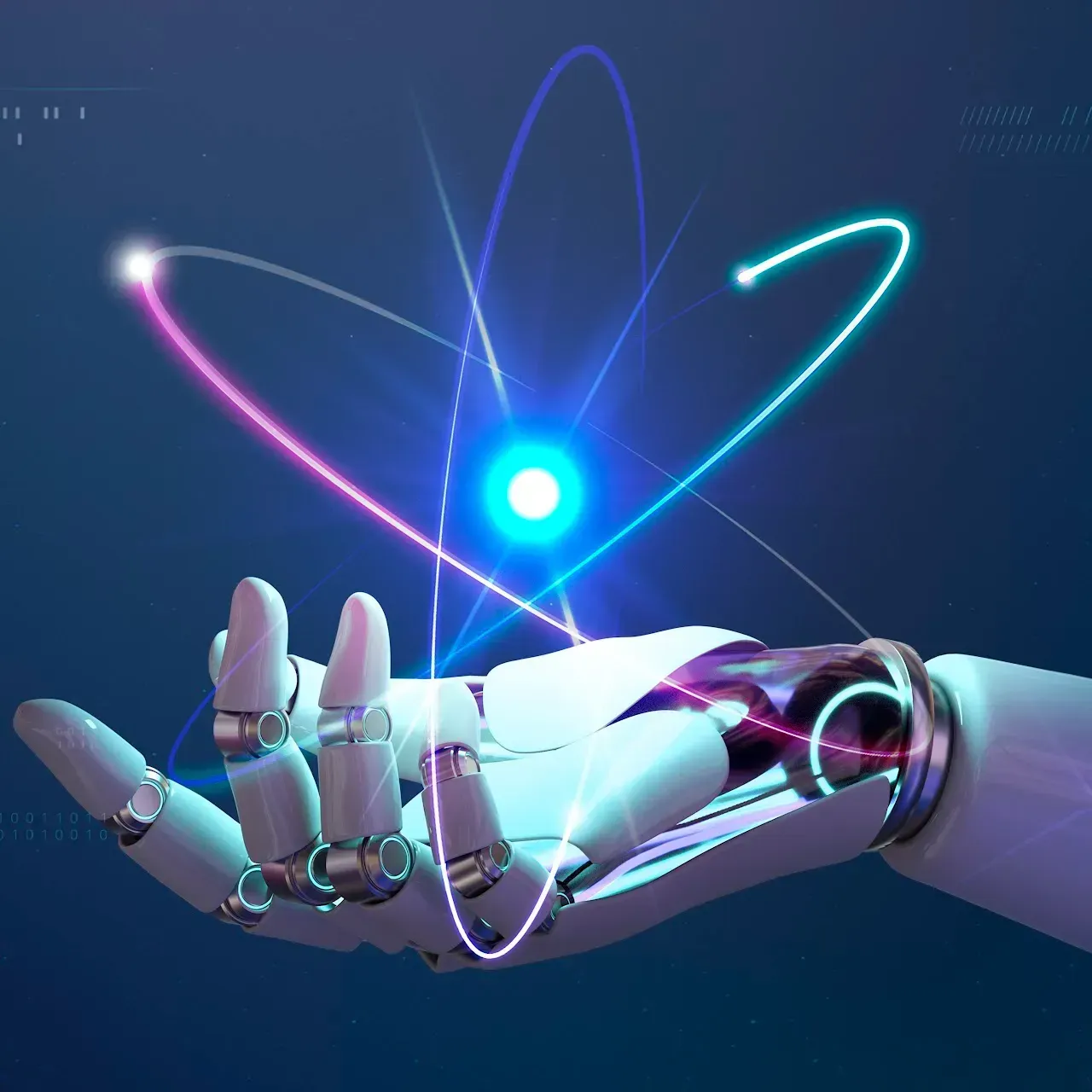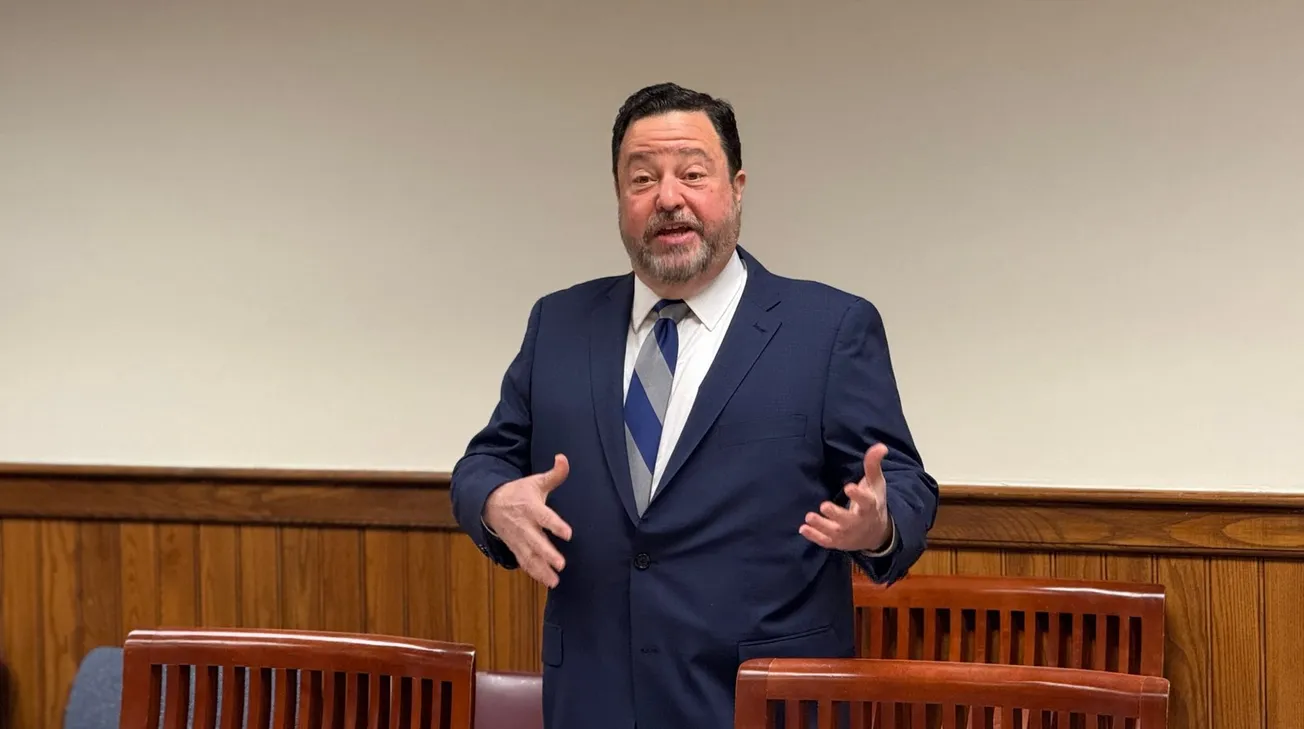Table of Contents
The Wilson Science & Technology Forum at The Jenks Center in Winchester
By Ron Latanision and John Brown
Tales from the AI Frontier
On October 10, Dr. Eddie Robins spoke about the human-machine interface in the expanding presence of artificial intelligence (AI) in our lives. The rapidity with which AI has become part of daily life for wide segments of society raises many concerns. Not many users, for example, are trained to manage their relationship with the machine and its pseudo-intelligence, and it is not uncommon for people to confuse machine responses as those of an intelligent, even emotional, agent. Partly, this is a matter of education in understanding of what exactly the machine (aka intelligence) is, compared to their own human nature.
It is a hole that few corporations and providers of AI are even trying to mitigate, and this is no small matter. In this talk Dr. Robins compared the basic “architecture” of rational human decision making compared to the way in which Large Language Model’s (LLM) reach their conclusions, and how agents, our alter-egos in the machine and on the internet, are essentially (or should be) extensions of ourselves into the cybernetic world.
As humans and machine become more integrated, there is a real risk of humans forgetting the central purpose of their creation. Additionally, where humans see uncertainty, the machine often provides answers with unwarranted confidence. Without injecting uncertainty and doubt in machine responses, and cross-checking, erroneous myths and misguidance could lead to disaster. Through tests, science fiction, myths and tales, technical analysis, and even illustrative art, he examined some of the depths of the human/machine combination to better comprehend the abilities of the machine, its current limits, dangers, and how we may manage that relationship – and why it needs managing in the first place – in order to achieve what Robins considers is the primary goal: the benefit of humans.
For some, however, the human-machine world raises the all-important questions: “What is the goal of AI?” and “Do we really want it?” This monumental presentation led to a new dimension for the Wilson Forum: We did not have time to follow-up with our usual Q&A on that day but instead scheduled a full special session on October 22 to serve that purpose.
Dr. Eddie Robins has a Ph.D. and Masters in Physics and Electrical Engineering from the University of Manchester, and an undergraduate degree in Physics from Imperial College, London. His career has spanned forty plus years over a range of industries and disciplines. From 1981 to 1989 he developed advanced algorithms and methods for data analysis, data analytics and data management in Canada’s National Fusion facility based in Quebec, Canada. In 1995, he joined Arlington Software in Montreal as VP and Chief Scientist to provide the underpinning algorithms and methods for multi-criteria decision-making products. Dr. Robins served as both consultant and lead in many projects which ranged from government and corporate policy decisions to decisions involving complex, technological analysis with multiple cross-disciplinary teams.
At EMC (now part of DELL), Dr. Robins lead several corporate wide efforts to manage risk and corporate and customer exposure to loss, largely through models and data analytics. Here he employed a variety of mathematical techniques, including Bayesian and neural nets, fuzzy logic, device physics, and Markov models. Access to large data sources, modeling human behavior as well as machine and component characteristics were necessary attributes, which made him estimate failure in the light of the machine-human link. This gave him a unique perspective of large-scale human-machine interactions, and the potential for corporate and personal liability. From this experience, he sees the need for guidance and guidelines in the use of such complex systems, and to more fully understand where human and machine can best find a working relationship for the benefit of (hopefully) the human world.
Beyond Waste: Spent Nuclear Fuel as the Strategic Energy Reserve of Humanity
On October 24 Professor Lefteri Tsoukalas made the case for considering spent nuclear fuel as a resource rather than a waste.
Despite decades of attempts at managing the waste produced by nuclear power plants, it seems clear that this nation has neither the political will nor public will to come to grips with waste management. On October 24 we witnessed the evolution of the technical will to address this problem. Purdue University Professor of Nuclear Engineering Lefteri Tsoukalas spoke on a topic of immense interest to nuclear electric suppliers throughout the world. Electricity and water demand from Artificial Intelligence is placing an unprecedented strain on energy.
This talk argues that meeting AI’s voracious energy appetite requires a fundamental shift in strategy. He proposes that new nuclear generators be deployed including, but not limited to, Small Modular Reactors (SMRs), Micro Reactors (MR), and Fast Breeders burning spent fuel (aka nuclear waste) while creating fresh fuel.
This strategy offers realistic solutions to our energy problems and a cost-effective, scalable alternative to fossil fuels. The presentation explores how AI can accelerate the atomic energy transition and outlines a policy framework that leverages the immense energy density of nuclear fuels to sustainably power the future of humanity while strengthening existing non-proliferation targets.
Lefteri H. Tsoukalas is the founding director of Purdue’s Center for Intelligent Energy Systems (CiENS) and a professor at Purdue University. He has over three decades of experience in developing AI/ML methods with over 300 publications including the textbooks Fuzzy and Neural Approaches in Engineering (co-authored with Robert E. Uhrig, Wiley, 1997); Fuzzy Logic: Applications in Artificial Intelligence, Big Data, and Machine Learning (McGraw Hill, 2024); and, Energy Transitions: The AI-Energy Nexus (World Scientific, 2025). Dr. Tsoukalas has served in several advisory and consulting capacities including at the OECD-NEA; the International Atomic Energy Agency (IAEA); the Agency for Science, Technology and Research (ASTAR) of Singapore; and the Secretariat of Research and Technology (GSRT) in Greece. Dr. Tsoukalas is a Fellow of the American Nuclear Society and the 2009 recipient of the Humboldt Prize, Germany’s highest honor for international scientists.
UPCOMING WILSON FORUM PRESENTATIONS:
On November 14, Writer Joe Simonetta, will speak on Truth: The Choice Between Collapse and Renewal - Humanity’s Most Urgent Task in a Closing Window of Time; and, on November 28, Wilson Forum Historian Vincent Dixon speaks on The Purposes and Evolution of Government.
All Wilson Science & Technology Forum presentations are recorded and can be streamed free on demand at the Wilson Forum’s website, https://jenksst.blogspot.com/
WinCAM broadcasts recordings of Forum presentations at 3 pm on Mondays and Fridays. For the schedule, go to https://wincam.org/schedule/education/ and search for “Wilson.” Likewise, our YouTube channel includes our video presentations: https://www.youtube.com/@wilsonsciencetechnologyfor3746/videos .
The Wilson Forum’s meetings are via Zoom, at 10:30 am on the second and fourth Fridays of each month, with the exception of July and August.
To learn of upcoming Forum speakers, you can check the Jenks Center’s website https://www.jenkscenter.org/ (events > daytime > Wilson Forum).
Better yet, you can receive advance notification of upcoming talks by emailing a request to be added to the Forum’s roster to rlatanision@alum.mit.edu.









